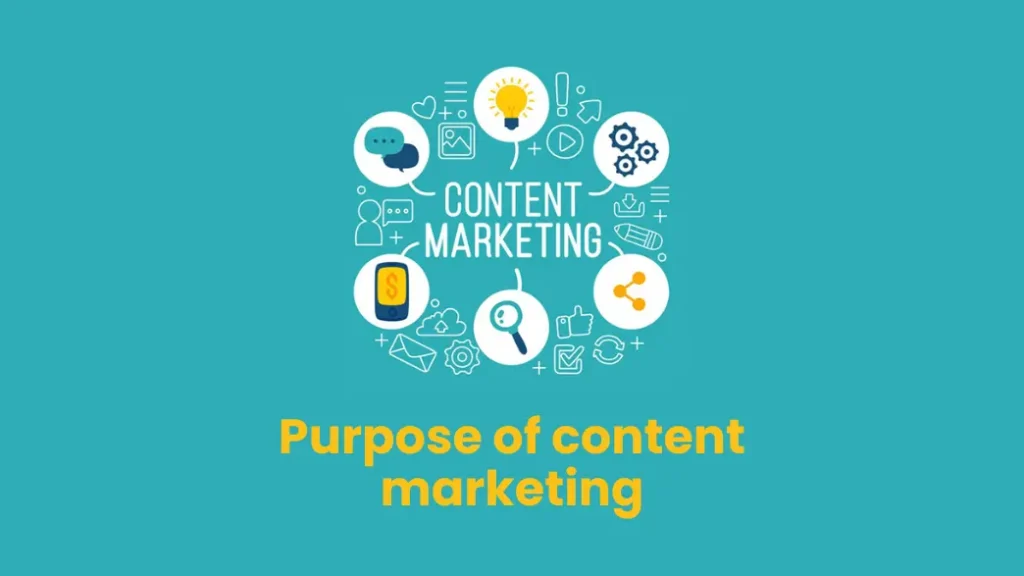Marketing of content includes the tracking and assortment of relevant and useful content. For example blogs, newsletters, white papers, social media posts, emails, videos, and similar content like this to current and potential customers. When it’s done, this content conveys expertise and makes it clear that a company values the people to whom it sells.
Table of contents
Content marketing
Content marketing is a method through which you can engage your audience. And by providing relevant and valuable content you can increase the number of your clients. This wisdom helps brands to resonate with their audience, engage them, and generate leads. It creates a positive impression about your brand and creates opportunities for your business.
It is no longer a market trend but a strategic investment to achieve business success. Through content marketing, a brand can gain increased relevance and visibility online and become famous among its users.
Purpose of content marketing

Content marketing is more than just improving your SERP rankings, showing off your extra experience, and increasing your conversion rate. It is also in the process of establishing a position with people that consume their demand and take care of it.
Regularly publishing content that is difficult to achieve in the form of love, support, and helps in converting visitors into readers and customers. And this also makes us feel like we have become customers again and again.
Content marketing is achieved through some factors.
- Teaching your audience about your products and its benefits.
- Show people how and why your brand is the answer to their problem.
- Creating a community that revolves around your brand’s identity and the things it sells
- Nurturing lasting relationships with both existing and potential customers
Working of content marketing
Good content marketing makes people appreciate your brand. If a video, a podcast episode, or a blog, and someone interested in the topic they watch it and get awareness from the voice of their brand.
Once you have that person’s attention, so you are able to establish a permanent relationship with them. As a result, you can sell them products and services.
Types of Content Marketing
Digital marketers have a great source for adopting the marketing wisdom of digital marketing. Here’s a look at a few of the most common types of marketing you can choose from to help you reach your goals.
1. Online Marketing
“Online marketing” is a general term used to describe any online content that you use to improve your brand identity, attract visitors, and increase SERP rankings.
But in a specific context, it refers to the content you publish to your website to reach its goals. The content may be standalone information pages, articles posted to your blog, and more.
2. Blog Content Marketing
Dedicated content marketers can use many tools for their advantage these days. But this strong, regularly updated business blog that is filled with helpful and search engine friendly content is an important part of marketing. Blog is not just a matter of inbound marketing just for web traffic and SERP rankings, but there are innumerable benefits of showcasing brands through blogging, starting from scratch, and building your website’s internal and external link structure.
3. Social Media Marketing
Social media is more than just a fun way to kill time or keep up with the news. It’s a part of how they live their daily lives. And they want and expect to see their favorite brands there, so social media marketing is a must for connecting with an audience.
4. Video Marketing
According to Wyzowl’s annual video marketing review, AJ’s 73 percent survey says that videos are preferred for the analysis and future purchasing decisions of brands. That’s why 92% marketers also say that the continued wisdom in video marketing is vital to their ongoing strategy.
Every digital marketer should incorporate this point of view into their marketing strategy. Video is a great addition for blogs and websites. But it’s also a perfect fit for social media platforms like Instagram, Facebook, and TikTok.

